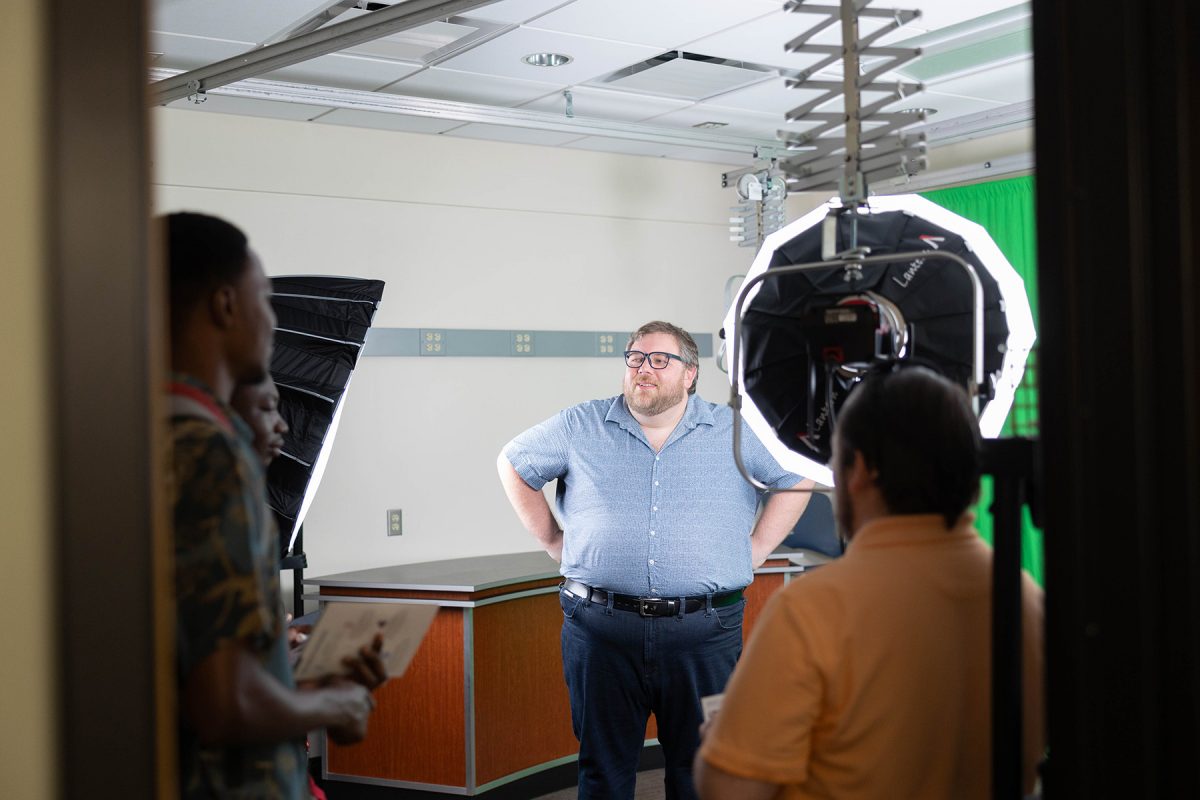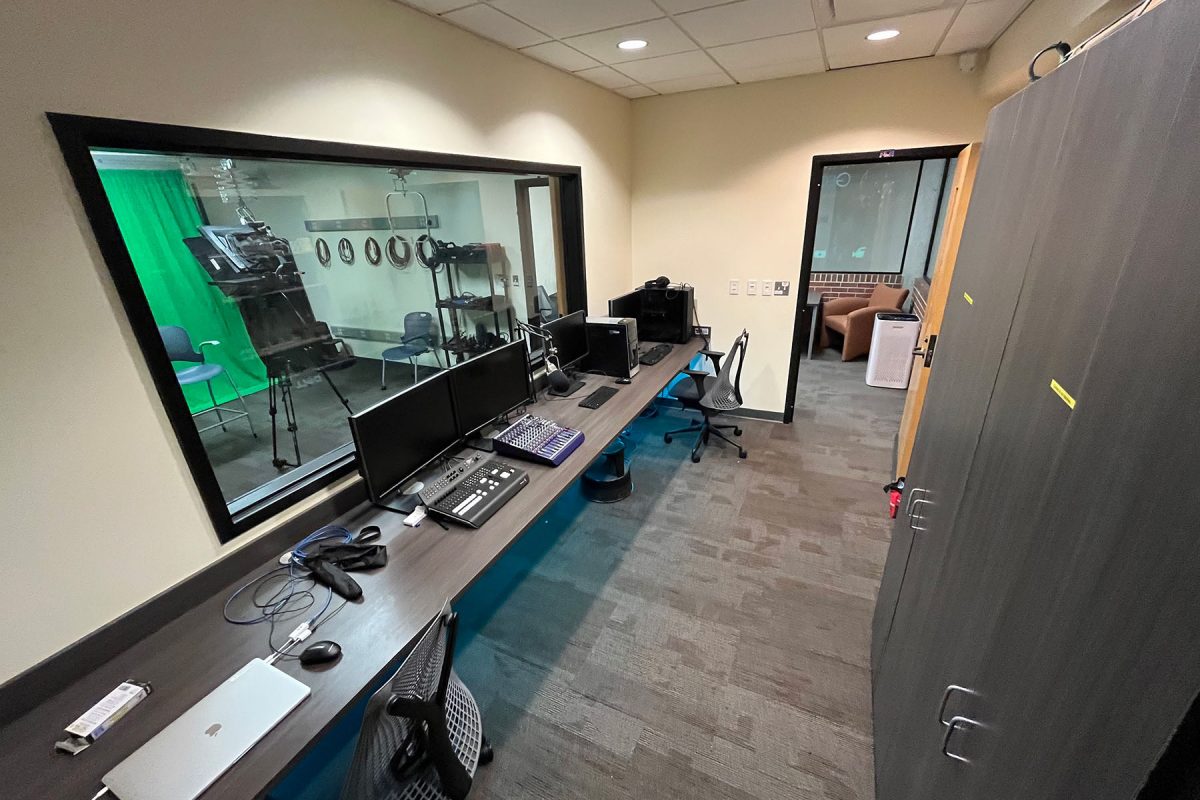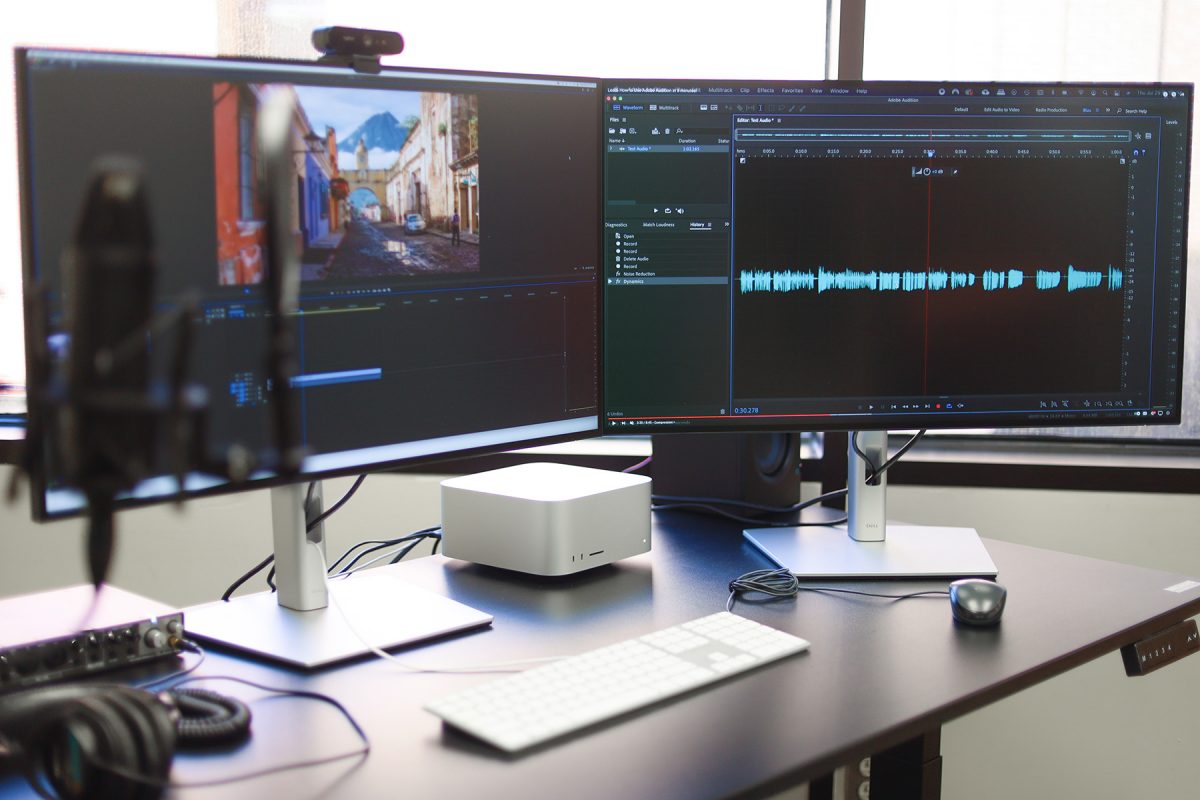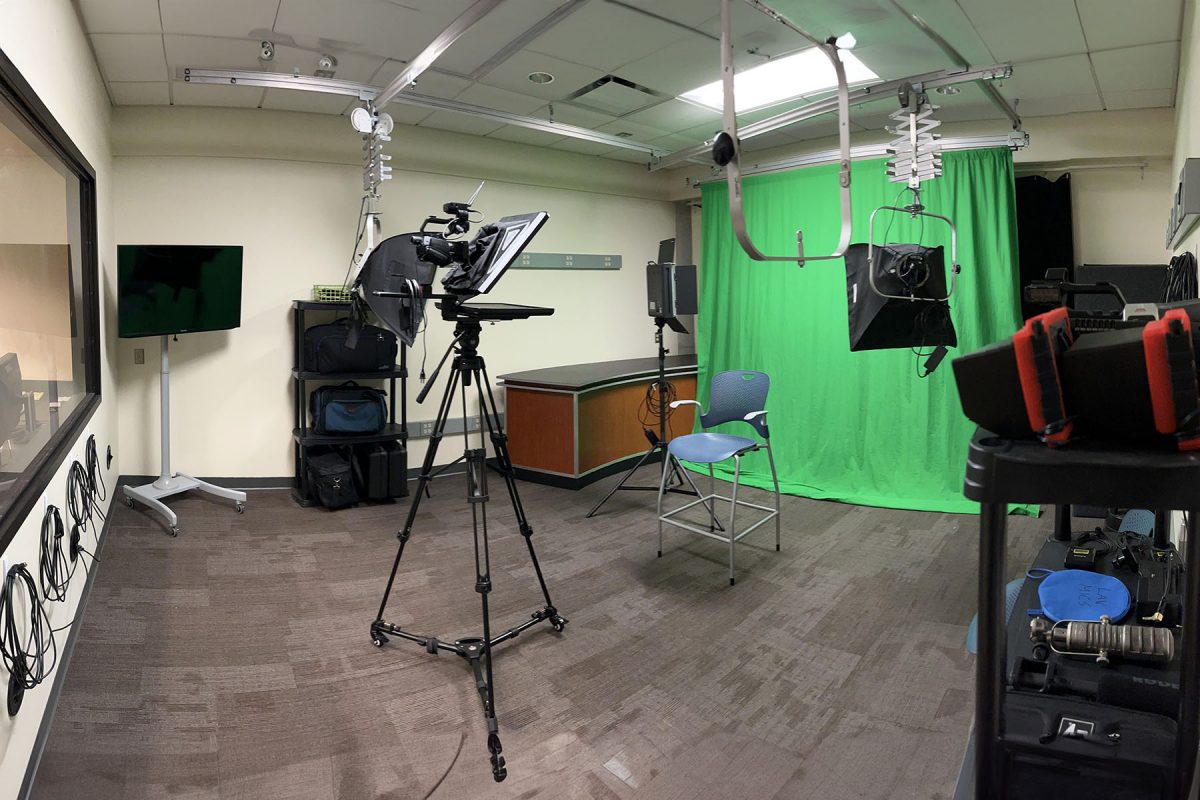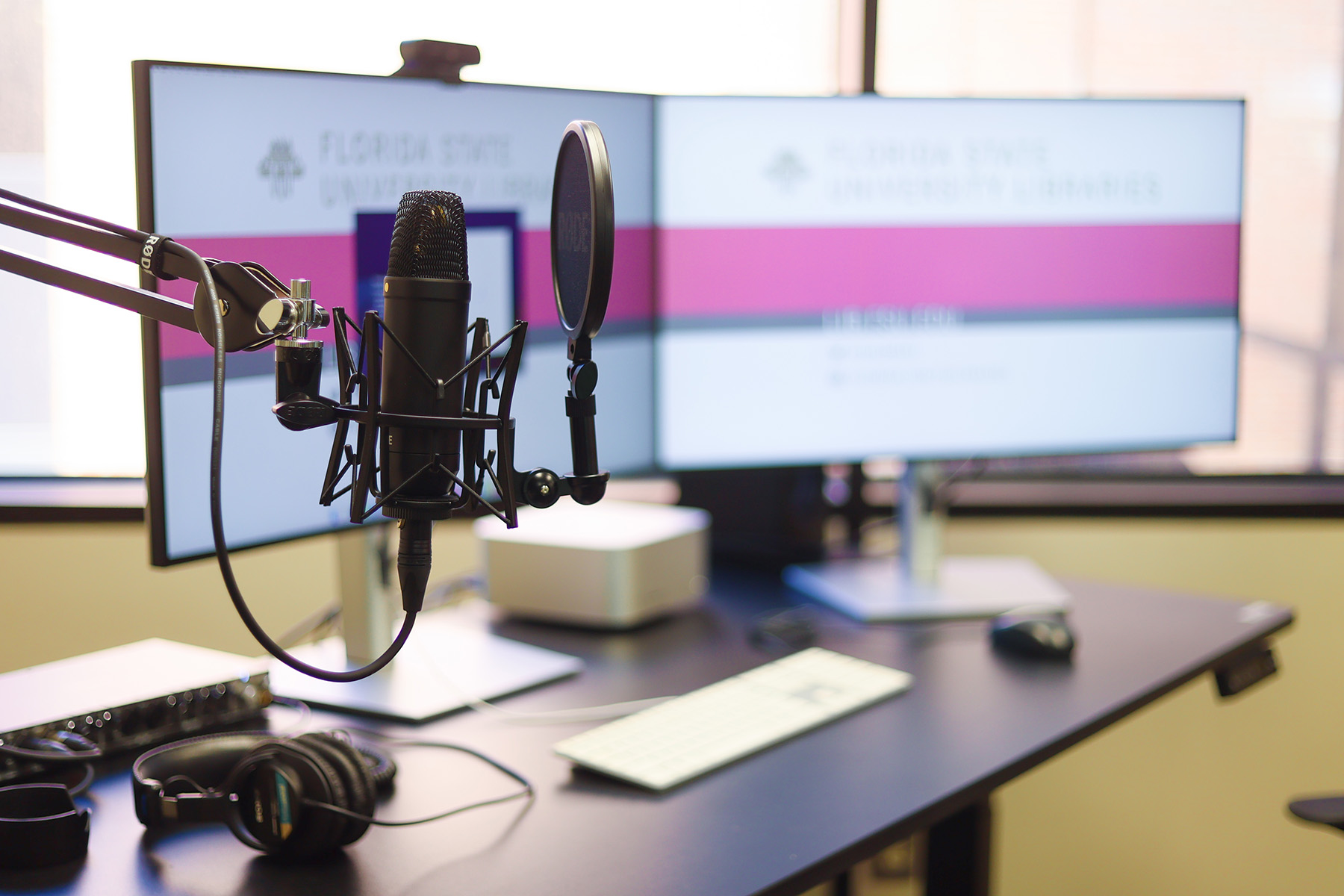
Nestled within Florida State University’s Dirac Library is a resource that has been a game-changer for FSU’s brightest minds over the past decade.
FSU Libraries’ Global Educational Outreach in Science, Engineering and Technology (GEOSET) Studios is celebrating 10 years in Dirac Library. Its mission is to help FSU researchers, students and faculty communicate their findings through free multimedia services such as video development, research and grant supplements, a full-service production studio and more.
“It’s very important for students nowadays to have access to media resources like this,” said Kyle Wilson, FSU Libraries Digital Media and GEOSET Manager. “Whether it’s a video submission for a grant or scholarship, or even a job interview, mastering these techniques is crucial. Learning and applying them throughout their careers, well beyond FSU, is integral to their long-term success.”
Through it’s work, the studio hopes to assist in the development of the newest generation of scholars who support and contribute to scientific research.
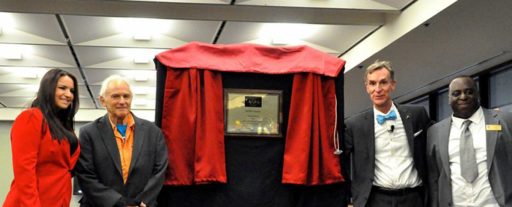
Originally funded by a Microsoft Research Grant, GEOSET transformed a print room into a media studio, formally opened in 2014 with the help of Bill Nye (the Science Guy). Founded by FSU chemistry faculty member and Nobel Laureate Sir Harold Kroto in 2006, GEOSET aims to promote open communication between scientists and the public. It now features a full production studio, a self-service media suite, on-location recording and streaming, and creative media consultation.
Throughout GEOSET history, the studio has been a gathering place for scientists and researchers, united by their shared goal of sharing their work with the world.
“I have used GEOSET and its studio for an impressive variety of projects,” said FSU Provost Postdoctoral Scholar in the Department of Geography Chris Omni, Ph.D.
“Some of these projects have included being interviewed for the PEN & Inc. Fellows program, capturing my 2nd-place victory during the 5MR (5-Minute Thesis) competition, recording my TEDx FSU talk, covering my presentation during the Open Scholars Forum, capturing footage and audio of my UROP research mentees, and most recently, professional development related to starting a podcast to support my current research study,” she said.
Over time, the studio has evolved and adjusted its services based on the changing needs and circumstances of its users.
“During the COVID-19 pandemic, GEOSET went fully remote, so the studio was completely closed,” Wilson said. “Funny enough, the pandemic was also the time that people most needed media training because suddenly everything was online, everything was video and audio production. When we shut down, we switched to a lot of training and workshops to help students and people get those skills that they’re very much still using today.”
GEOSET continues to invite the FSU community to use its services.
“We’ve been welcoming to all types of researchers, whether they be undergraduate researchers, graduate researchers, postdocs or faculty,” Wilson said. “Anyone doing scholarly work that they want to share with the world is welcome to reach out to us and see how we can help them do that.”
To use the main GEOSET studio at Dirac Science Library, visit geoset.fsu.edu and submit a service request. The secondary location, the Media Suite at Dirac is specifically designed for undergraduate students and can be reserved for recording audio and conducting interviews.




